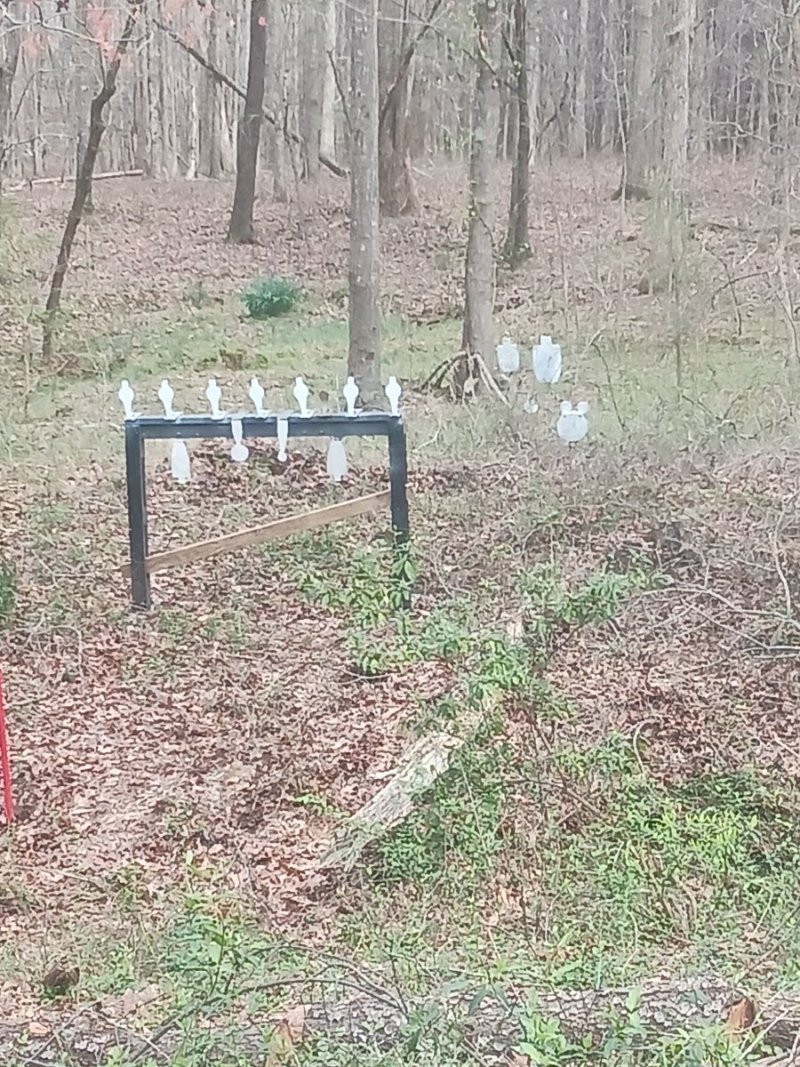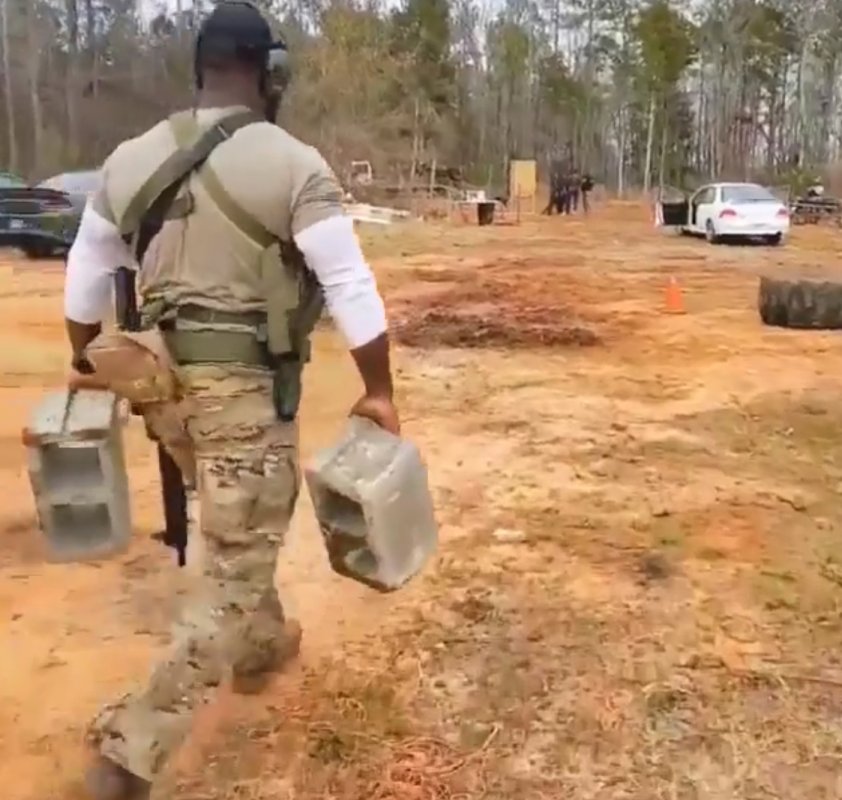Book some time with a competent instructor who can get you pointed in a productive direction. The relative cost of instruction has fallen a lot given what ammo costs these days—it's become super expensive to figure it out on your own. The deficiencies you've pointed out are things that an instructor with a competition shooting background should do well.
Navigation
Install the app
How to install the app on iOS
Follow along with the video below to see how to install our site as a web app on your home screen.
Note: This feature may not be available in some browsers.
More options
-
ODT Gun Show & Swap Meet - May 4, 2024! - Click here for info
You are using an out of date browser. It may not display this or other websites correctly.
You should upgrade or use an alternative browser.
You should upgrade or use an alternative browser.
Humbling day at the range.
- Thread starter CAMSDADDY
- Start date
There are a lot of shooting competitions and LEO-style "qualifications" that have challenging choreography.
It's like a dance-- you have to know when to spin, when to dip, which foot to lead with, and how to switch partners. Oh, and don't forget to sit in the closest available chair when the music stops!
I've NEVER been able to study this effectively alone. It requires a partner / coach with a clipboard and a stopwatch to make you run through the drills just the same as you'll have to do in a real match / qualification. If I don't do a few dry runs through the course of fire, I will forget. And most of the time, I can't hear the range officer's commands, other than the ones that are easily recognized: Fire. Stop. Clear and make safe. Other instructions that remind us trainees about what we have to shoot next, how many rounds on which target with which hand... I often don't hear those. I better have them memorized or on a cheat sheet taped to my wrist.
It's like a dance-- you have to know when to spin, when to dip, which foot to lead with, and how to switch partners. Oh, and don't forget to sit in the closest available chair when the music stops!
I've NEVER been able to study this effectively alone. It requires a partner / coach with a clipboard and a stopwatch to make you run through the drills just the same as you'll have to do in a real match / qualification. If I don't do a few dry runs through the course of fire, I will forget. And most of the time, I can't hear the range officer's commands, other than the ones that are easily recognized: Fire. Stop. Clear and make safe. Other instructions that remind us trainees about what we have to shoot next, how many rounds on which target with which hand... I often don't hear those. I better have them memorized or on a cheat sheet taped to my wrist.
If you are shooting a match or qualification where the target is dark colored and you might not be able to see the bullet holes appear in the target, practice that. Most of us shoot light-colored targets and from close enough that we can see most of our hits, and correct on the fly. Some shooting events aren't set up to allow for that, and certainly real-life defensive gun use won't give you that kind of instant feedback on your shot placement (this isn't Hollywood, with plastic baggies full of red dye being blown up on a bad guy's chest with a small explosive charge).
If you are shooting a match or qualification where the target is dark colored and you might not be able to see the bullet holes appear in the target, practice that. Most of us shoot light-colored targets and from close enough that we can see most of our hits, and correct on the fly. Some shooting events aren't set up to allow for that, and certainly real-life defensive gun use won't give you that kind of instant feedback on your shot placement (this isn't Hollywood, with plastic baggies full of red dye being blown up on a bad guy's chest with a small explosive charge).
this is called "calling your shots". it takes practice with both dryfire and real life rounds down range, and encompasses an understanding of the mechanics as the shot "breaks". this lets you know where the round impacted without actually looking at holes in the paper or listening to steel hits, which you shouldn't be doing in matches or on the street. You need to know where your rounds are going based on all the factors that got you to the point that the round left the gun.
takes practice and probably a decent coach but I can tell if I'm on or off target very quickly at 25 yards and under, even quicker than waiting for a steel ping or it to fall. This lets you run faster since you're doing the next thing before getting results for the first thing.
also it's not a dance. it's about economy of movement. If you have to draw and move to get somewhere, no reason not to be drawing WHILE moving.
if you're not shooting you should be moving. If you're not shooting but are moving you should be reloading. If you're not doing any of the above you should be taping targets and picking brass.
I travel so much that it seems like I have to go back to some remedial training every time I get back at it. When I am really frustrated, I shoot a 22 pistol until I feel my performance is sufficiently less terrible. Not sure if that's helpful at all but it works for me.
The weekend following I finally gave in and attended the monthly defensive handgun match held at Camp Sumter in Andersonville. I have actually attended for the last three months. Each month I feel like I learn something and each time I pick up a pointer from someone watching. One of the most beneficial things is that each run is captured on video and Ive been able to go back and see what I did right and what I did wrong. I can also go back and watch some of the better guys and see what they are doing as well. This month was a snub neutral match which was really cool considering a snub is a constant most of the year. This past month I learned the loading bench can be your friend or your enemy and I revaluated my loading process. Its a journey,
Interesting. I wouldn't sell all my guns and blow good money on a rape whistle unless I was really good looking. I'd buy a can of wasp & hornet spray instead because it can be used for multiple things.
I shot my 34 and my 19. I failed the LA swat qualifier. A friend passed it with a 2” 22 317. I also failed the Georgia law enforcement test. Today was quite humbling. Goes to show just shooting at plates and shooting groups does prepare you to shoot course of fire. The guns are capable. I feel I am capable of the accuracy needed for all of the courses. It’s getting my head in the game and following the directions and then following them and recovering and adjust if needed. I got twisted on several sections that involved steps and reloads and multiple targets. It seems simple now but during the coarse of fire I got couldn't get past the mental. I now know what I have to work toward.
Of course I came home and was thinking do I need to sell all of my guns and just buy a rape whistle? Should I get a 4" K frame since I carry my 642 a lot and just focus on really shooting them? Should I get a 26 and hang up the 642 and just shoot it and my 34? This is the reason my performance isn't where I want it to be. I always think there is a hardware solution to a software issue. I have not shot a fraction as much in the past two years as I did prior and I have done zero practice with reloads etc.
Totally agree with all the dry fire recommendations! Same thing happened to me a couple weekends ago once I finally made it out to the range. I saw some mentions of USPSA. This is a great way to run courses of fire, not use too much ammo, and get reps in that fill the gaps dry firing has. It's pretty easy to find local matches. I know a lot of people who religiously attend the match at Sharpshooters every Monday. There will be differences I'm sure, but allows consistency on a weekly basis.
Also, the owner of Executive Training Group has a USPSA Performance course 8/28/22. I think it is limited to 5 students. You can also schedule a private lesson if you need to work through primary to secondary transitions and reloads while on the moving or moving through the course of fire you expect on the test.
I spent around three hours a couple weekends ago working the above and a lot of malfunctions. It was humbling and I quickly realized how rusty I've become. Good luck!










